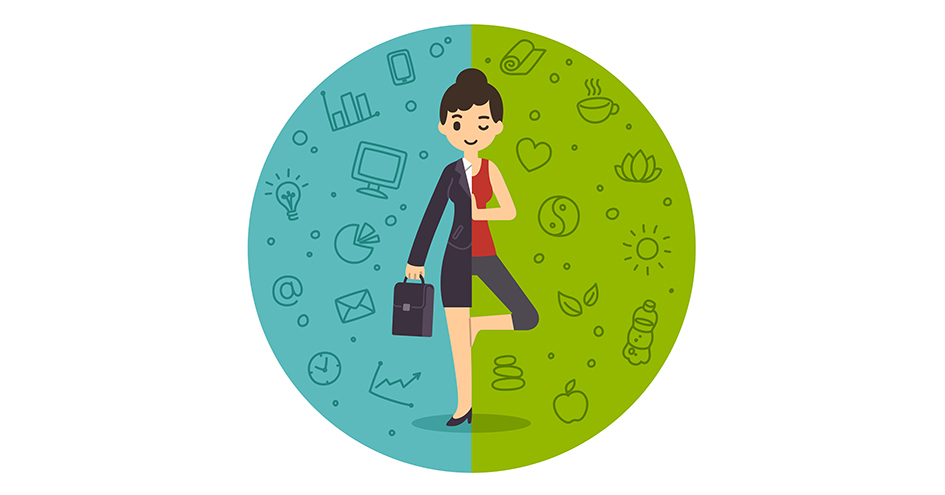Why is everyone talking about this Mindfulness thing these days?
Over the past few years there has been a significant increase in interest from executives and Learning and Development departments in Mindfulness. In my work as an executive coach and leadership development facilitator, I have been awed by the extent to which people are asking for more content, help, and understanding of how to be more present in their work and lives. Most professionals in the Mindfulness field attribute this rapid rise in interest to the fact that through MRI’s, brain scans, and rigorously controlled meditation studies we have better science and data available to us that clearly demonstrates the benefits of mindfulness. Based on what I’m witnessing I would have to conclude that in addition to the compelling science, the rising interest in mindfulness practices is a response to the fact that we are completely overwhelmed by our limitless access to information and non-stop expectations of connectivity.
Here’s what I see happening across multiple industries in a variety of roles at every level. We go into our days with our set plans, tasks and goals. Within an hour, we find ourselves completely taken off course by competing needs and interests, usually arriving in the form of emails and texts from bosses, co-workers, and clients. We find ourselves managing priorities and new information, re-acting instead of acting, hitting reply instead of compose. Even though we are expending energy, we are not getting done the things we most want to accomplish. We are struggling to feel in charge of where our focus is or even what our focus should be. By mid-day we feel scattered and off balance. We find ourselves increasingly irritable and unable to respond to pressure in the ways we’d like. When we get home, the emails and texts keep coming; we are sort of at home, sort of at work and definitely not recharging.
Okay, so what exactly is this Mindfulness thing?
Mindfulness is the state of being conscious and aware of the present moment. It is intentional, non-judgmental awareness of our thoughts in the current moment. The benefit of this awareness is that it enables us to see the space between stimulus and response. In that space, we get to recognize that our thoughts are indeed merely thoughts and we get to make a choice about how we then respond, engage, behave. In that space, our decision making and emotional regulation happen. Our ability both to maintain and regain our attention and focus and to respond to and manage stressors and threats is referred to as cognitive control. Research shows that there is a higher correlation between success and cognitive control than there is to IQ or family income. This is incredibly important to consider when we think about our development. Our ability to manage and regulate ourselves is a critical factor in what can make us successful. Among other benefits, a mindfulness practice is an opportunity to build and strengthen our cognitive control. We are a culture that has recognized the importance of working out our bodies. We have much work to do in recognizing the importance of working out our minds.
I’m not sure I get what a mindfulness practice might actually look like?
A mindfulness practice might be as simple as sitting in your office chair for one minute focusing on what your feet feel like on the floor and your hands feel like resting on your legs. It could be closing your eyes for thirty seconds and taking three long, slow breaths. It could be taking a walk being deliberately aware of the movement of your legs and feet. Researcher Ellen Langer says mindfulness can come from the practice of “actively noticing new things,” which in itself forces you into the present. The point is to bring you back to yourself and make you fully awake to what is in front of you. It’s to become aware of the thoughts in your head that create your reality. With that awareness, you can be more deliberate about how you construct and respond to those thoughts. You can recognize which thoughts are serving you and which ones are holding you back. It’s tuning into what is actually happening right now rather than being distracted by what might, could or has happened before. We may want to focus on what might happen as part of a critical thinking process, but we don’t want to be distracted or held back by it. If we are going to unearth new possibility and potential, if we are going to have agency and provide direction within the increasing and constant rate of change of our environment, we must be able to choose how we are in relationship to that environment. We must be able to choose where to set boundaries, when to connect and disconnect, how to react, and when not to react. Mindfulness helps us to see where and how often those choices exist.

Why have I always thought Mindfulness and meditation are the same thing?
Mindfulness is about paying attention to what is happening in the present, so meditation that focuses on the breath is the most reliable Mindfulness pathway. The in and out of our breath is a reality we can always return to and that is always happening right now. There is a huge variety of meditation practices. Recent studies claim that as little as eight minutes a day can have a meaningful impact on our ability to re-focus and recover from stress. There are one- minute meditations. There are extensive meditation practices lasting one day or many days. For centuries, these more extensive meditation practices have provided many people a pathway to explore their spirituality.
Meditation is a challenging practice when we already feel like we don’t have enough time to meet the demands of the day. Beginners are often encouraged to try from five to twenty minutes a day. Sitting down to do what feels like nothing but breathe feels downright crazy when we are already strapped for time. It’s a huge challenge for me personally but I continue to make room for it because I find that it truly pays off in both short and long term ways. After I meditate, I feel that I have new resources to call on, a more capable version of myself. Things that were registering as challenges suddenly don’t seem like such a big deal and the stress inducing to-do list feels utterly do-able. A variety of studies show that meditation does impact the brain, improving areas associated with focus, self-regulation and stress response. Regular meditators exhibit less impulsive thinking and more resilience in recovering from stressors. I have also noticed that when I am on a good streak of several meditation days, I feel my patience and my generosity (especially with myself) expand.
What does generosity with yourself have to do with anything?
Contrary to what many believe, it’s not just the focus on your breathing and absence of thought that has a positive effect. It’s the gently nudging yourself back to focusing on your breathing when you notice you’ve trailed off into thought. Your mind is going to wander, every time. It’s what the mind does. Each time you intentionally and kindly bring your thoughts back to your breath, you are practicing a return to focus and attention to right now. The return from the distracting thought is the practice. If you have to nudge yourself back a hundred times in ten minutes, it is not a failure, you just practiced returning to right now a hundred times. Right now is where your life is happening. It’s where you have the opportunity to impact positively or negatively the people in front of you. It’s important to nudge yourself gently back each of those times and without judgment because you are also practicing kindness and patience with yourself. It is difficult to be fully present when we are busy punishing ourselves. Forgiving ourselves for being lousy meditators is a great start in building our capacity to be kind to ourselves, and this is the only way we have the capacity to be kind to others. In an overwhelmed, fast-paced, technology driven world, the capacity for kindness cannot be over-estimated. How we are treated at work hugely impacts both our willingness and our ability to be effective. For leaders who model the behavior that defines a culture, the ability to be deliberate and in control of their behavior is crucial.
So as an executive coach with lots of tools to offer, you really think Mindfulness makes a difference?
Our constant connection to technology, calendars, and people who demand our energy is making us increasingly disconnected from the present and from ourselves. We simply cannot be the best versions of ourselves, we cannot react with the full capacity of our emotional intelligence or perform with the full capacity of our intellect when we feel pushed and pulled in multiple directions. A mindfulness practice can reduce that feeling of disconnect and of being overwhelmed by quite literally helping you drop into the present, notice what’s happening and open up the choices before you. My clients are looking for more time, sharper focus and clearer prioritization; more capacity to be inspiring leaders and more resilience to keep up with the increasing demands of our world. There are many tools and strategies to call on but I believe that at the core of it all is mindfulness, the ability to be present. To choose the right tools and enact the best strategies, we have to be fully aware of what any given moment truly calls for. We can function as our best, most resilient and reasonable selves in any circumstance if we are willing to slow down, pay attention, look inwards and connect with who our best self is.

